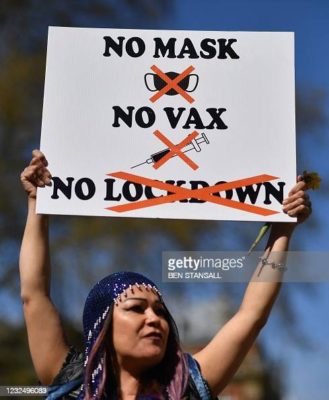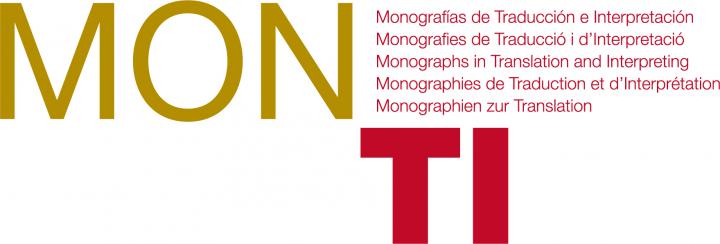Genealogies of Knowledge I Translating Political and Scientific Thought across Time and Space
University of Manchester 7-9 December 2017
Science and Translation as Culturally Embedded Practices
Convenor: Maeve Olohan, University of Manchester
Call for Panel Papers (Adobe PDF)
Through the work of science studies, many scholars have come to understand science as culturally situated knowledge practices. This shift in understanding entailed a move away from thinking about science as the pursuit of universal truths and a debunking of the assumptions that science is unified and value-free.
The notion of epistemic cultures (Knorr Cetina 1999) provided a way of exploring cultural differences across branches of science and within scientific communities. Latour and Woolgar (1979; 1986) had already conducted ethnographic studies in the laboratory, tracing the local contingency of knowledge-making. Traweek’s (1988; 1992) and Knorr Cetina’s (1999) subsequent comparisons of scientists in different specialisations and locations attended further to local strategies of sense-making, but also to the intersections between cultures of the laboratory and the wider cultural contexts in which the scientific practices were situated.
These and other studies draw attention to the “ideas, things and marks” of science (Hacking 1992, 32). Latour’s actor-network theory (2005) and Pickering’s mangle of practice (1995) are among the conceptual and methodological frameworks that help to account for the interactions of humans and material entities, including inscriptions or texts, in the practising of science. Swales (1990; 2004), Halliday (2004), Myers (1990; 1997) and Hylands (2000; 2005), among others, provide tools with which to analyse the discourse and rhetoric constituting scientific practice. Notions such as Gieryn’s (1983; 1999) boundary work are useful for thinking about how scientists and others demarcate scientific territory, and how participation in scientific cultures is legitimated, blocked or challenged.
This panel aims to explore a range of themes that arise from conceptualising both science and translation as culturally embedded practices. Contributions are invited from scholars who foreground cultural perspectives in the study of scientific translation and the communication of scientific ideas across epistemic and linguistic cultures.
Papers may include conceptual or empirical explorations of the following issues, among others, in present-day or historical contexts:
- Conceptualisations of knowledge practices and their movement across epistemic, linguistic and cultural boundaries, e.g. Secord’s (2004) notion of “knowledge in transit” or Raj’s (2007) “sites of intercultural contact”.
- Cultural specificities in the selection of scientific questions to investigate and ideas to communicate across linguacultures, including, for example, cases where such decisions are seen to be in the interests of hegemonies who control natural or economic resources but detrimental to marginalised groups.
- Inequalities and asymmetries in the interchange of knowledge between cultures, for example with reference to cultural, political or economic factors that have shaped Eurocentric or ‘Northern’ knowledge production and the consequences of these (see Harding 2011).
- Embeddedness of science in public culture, for example, through examination of specific practices of scientific popularisation and communication, including interrogation of the culturally constructed categories with which people interpret and evaluate scientific claims.
- Uniformity and diversity in the discursive construction of scientific ideas across epistemic cultures or linguacultures and the consequences of such representations.
Selected References:
Gieryn, Thomas F. 1983. ‘Boundary-Work and the Demarcation of Science from Non-Science: Strains and Interests in Professional Ideologies of Scientists’. American Sociological Review 48 (6): 781–95. doi:10.2307/2095325.
———. 1999. Cultural Boundaries of Science: Credibility on the Line. Chicago: University of Chicago Press.
Hacking, Ian. 1992. ‘The Self-Vindication of the Laboratory’. In Science as Practice and Culture, edited by Andrew Pickering, 29–64. Chicago: University of Chicago Press.
Halliday, M.A.K. 2004. The Language of Science. Edited by Jonathan J. Webster. London and New York: Continuum.
Harding, Sandra, ed. 2011. The Postcolonial Science and Technology Studies Reader. Durham, NC: Duke University Press.
Hyland, Ken. 2000. Disciplinary Discourses: Social Interactions in Academic Writing. London: Longman.
———. 2005. Metadiscourse: Exploring Interaction in Writing. London: Bloomsbury Publishing.
Knorr Cetina, Karin. 1999. Epistemic Cultures: How the Sciences Make Knowledge. Cambridge, MA: Harvard University Press.
Latour, Bruno. 2005. Reassembling the Social: An Introduction to Actor-Network-Theory. Oxford: Oxford University Press.
Latour, Bruno, and Steve Woolgar. 1979. Laboratory Life: The Social Construction of Scientific Facts. Beverly Hills: Sage.
———. 1986. Laboratory Life: The Construction of Scientific Facts. 2nd ed. Princeton, NJ: Princeton University Press.
Myers, Greg. 1990. Writing Biology: Texts in the Social Construction of Scientific Knowledge. Madison, WI: University of Wisconsin Press.
———. 1997. ‘Texts as Knowledge Claims: The Social Construction of Two Biology Articles’. In Landmark Essays on Rhetoric of Science: Case Studies, edited by Randy Allen Harris, 187–215. Mahwah, NJ: Lawrence Erlbaum.
Pickering, Andrew. 1995. The Mangle of Practice: Time, Agency, and Science. Chicago, IL: University of Chicago Press.
Raj, Kapil. 2007. Relocating Modern Science: Circulation and the Construction of Knowledge in South Asia and Europe, 1650-1900. Basingstoke: Palgrave Macmillan.
Secord, James. 2004. ‘Halifax Keynote Address: Knowledge in Transit’. Isis 95 (4): 654–72.
Swales, John M. 1990. Genre Analysis: English in Academic and Research Settings. Cambridge: Cambridge University Press.
———. 2004. Research Genres: Explorations and Applications. Cambridge: Cambridge University Press.
Traweek, Sharon. 1988. Beamtimes and Lifetimes: The World of High Energy Physicists. Cambridge, MA: Harvard University Press.
———. 1992. ‘Border Crossings: Narrative Strategies in Science Studies and among Physicists in Tsukuba Science City, Japan’. In Science as Practice and Culture, edited by Andrew Pickering, 429–65. Chicago: University of Chicago Press.
Submission of Paper Proposals
Abstracts of 300-500 words should be sent by 31 May 2017 to:
Dr. Maeve Olohan, maeve.olohan@manchester.ac.uk
Notification of acceptance will be given by 15 June 2017.
Further Information
Final Call for Papers for Genealogies of Knowledge I Conference.



